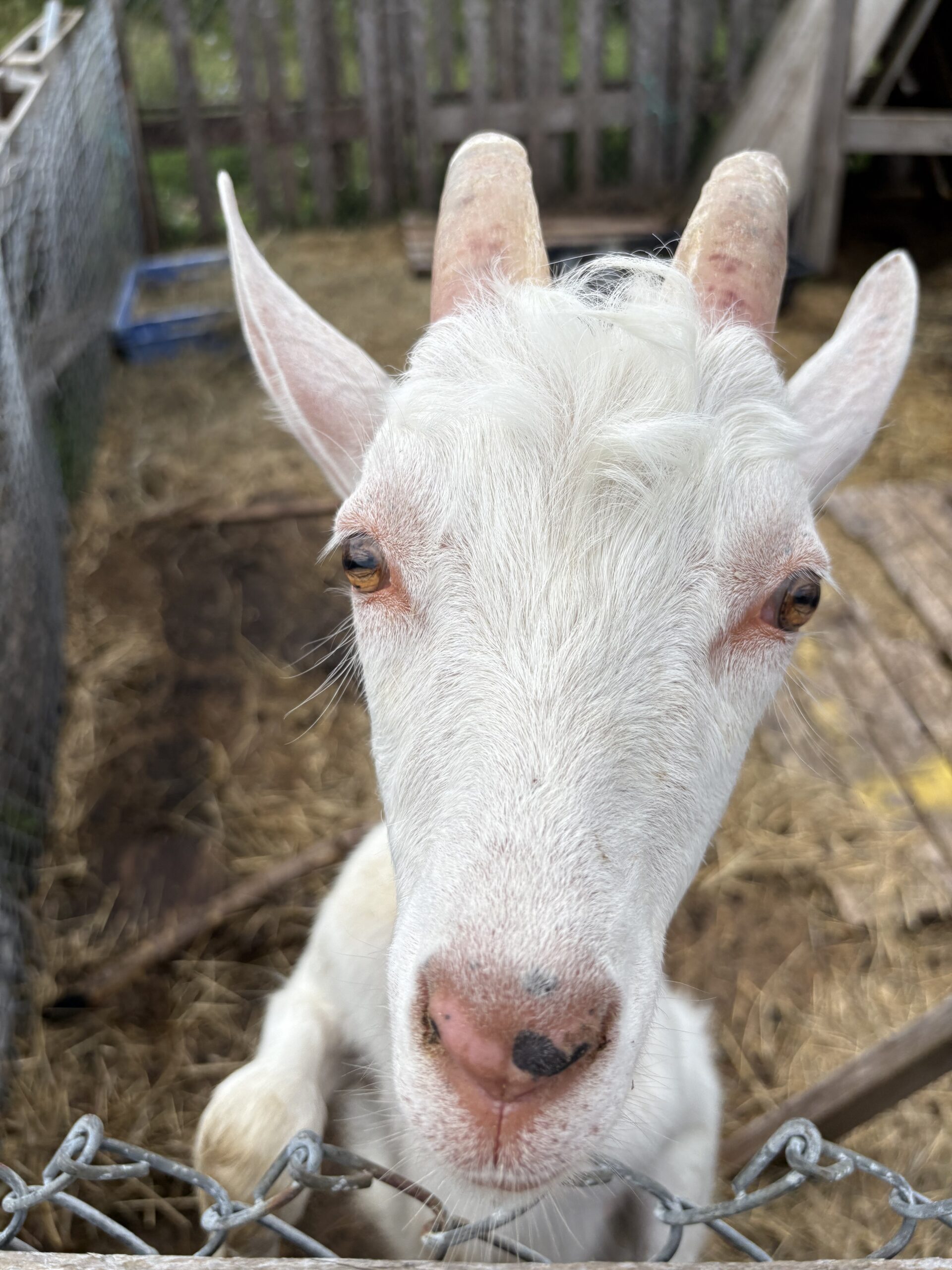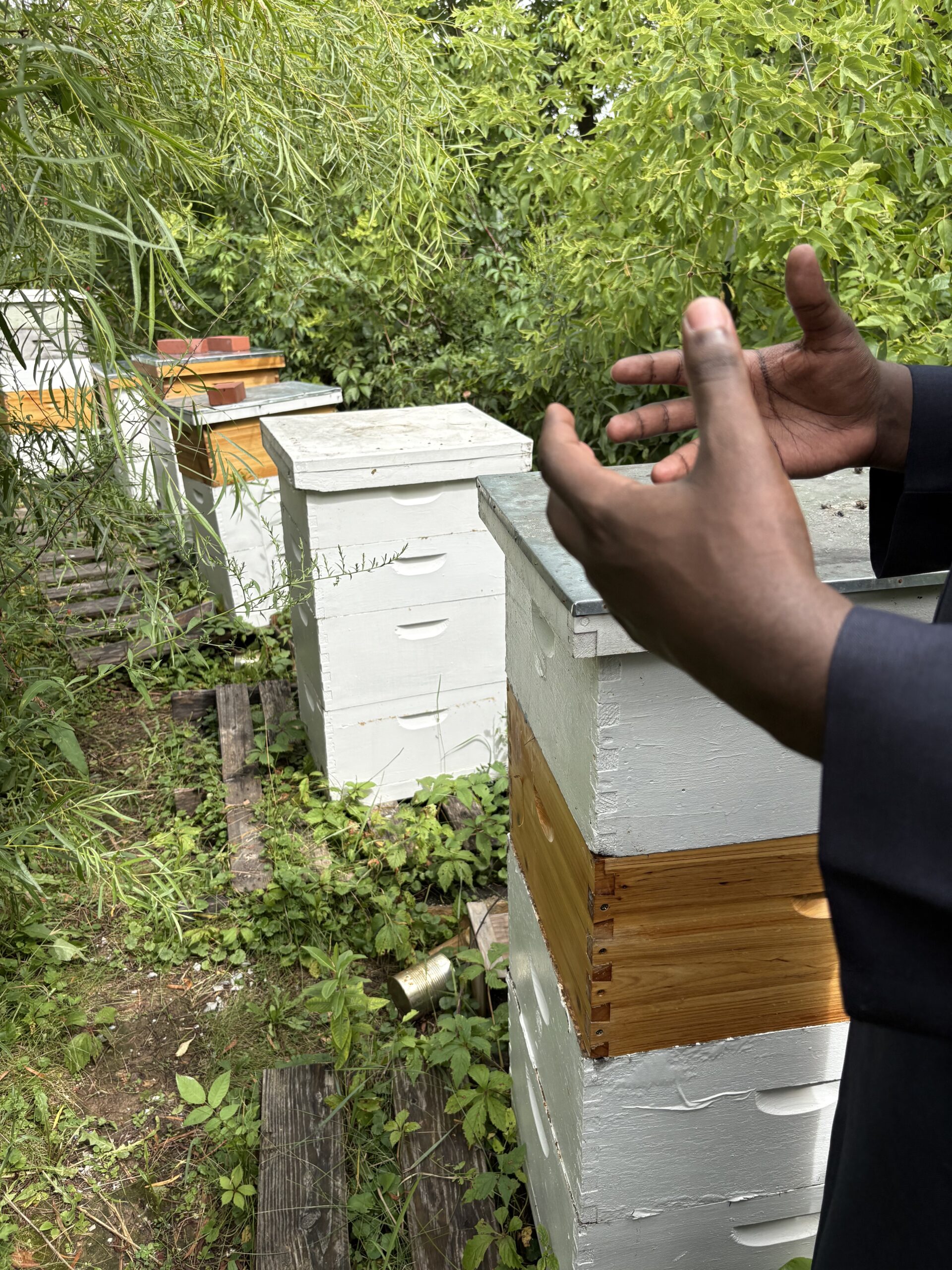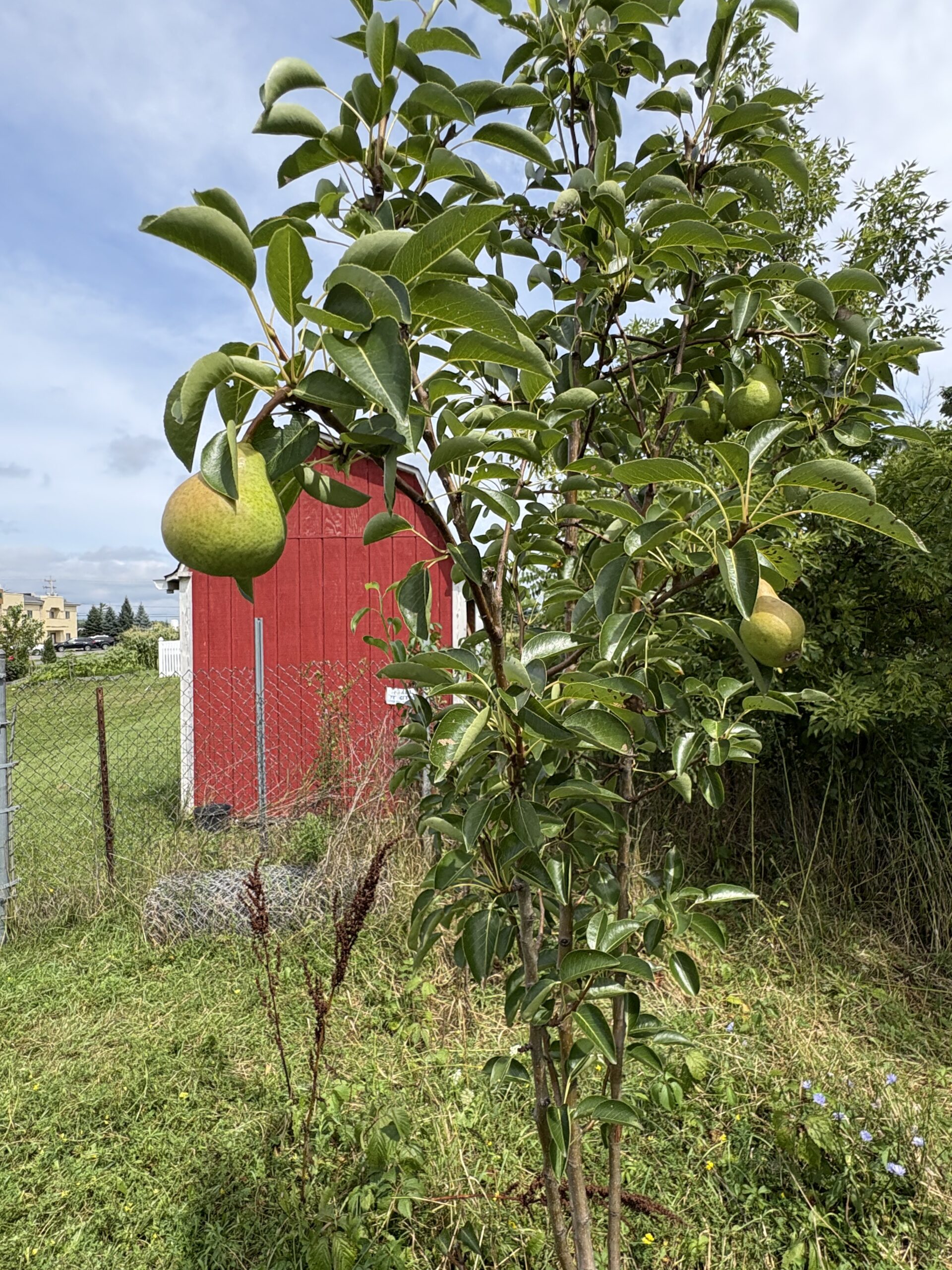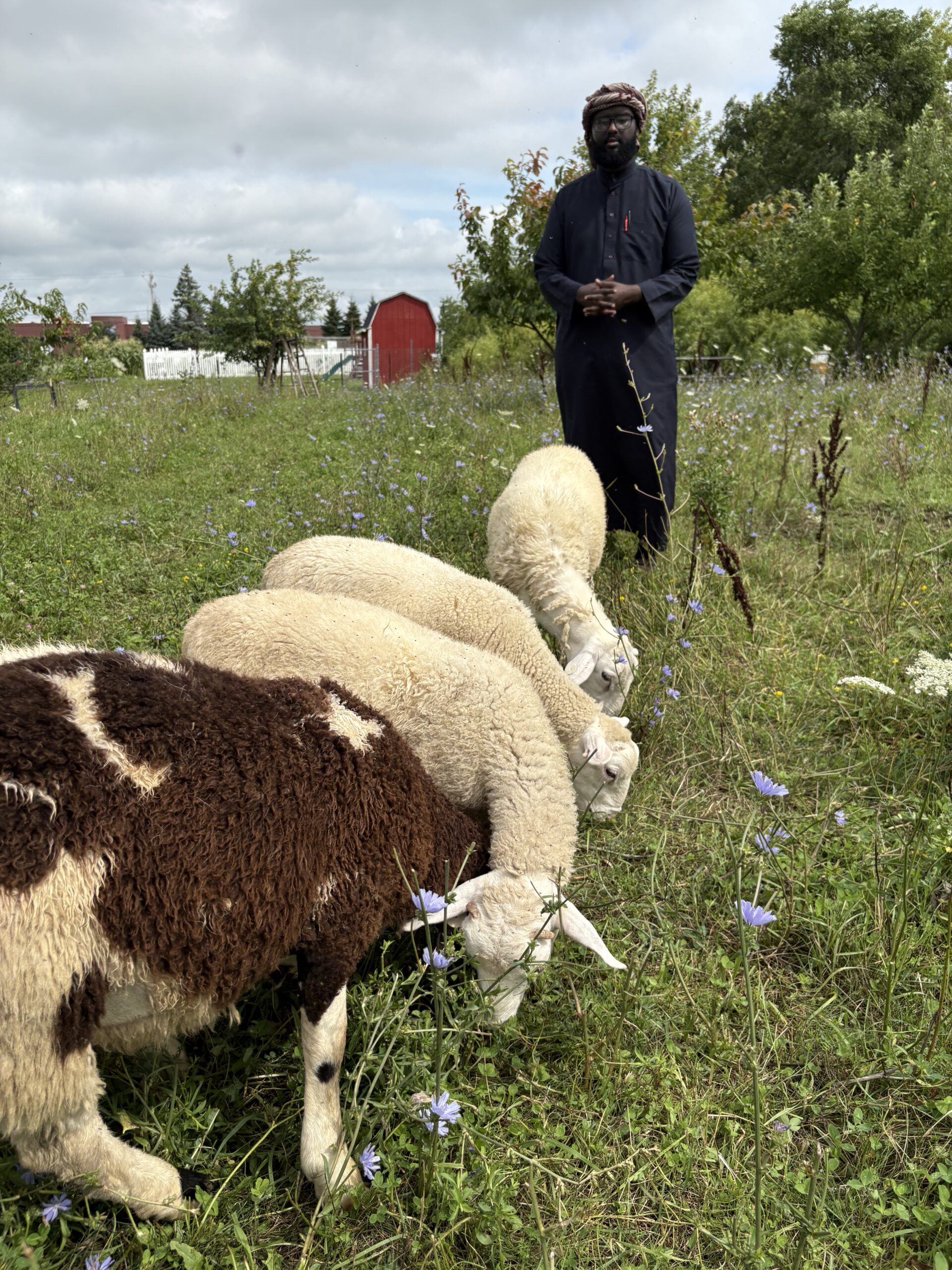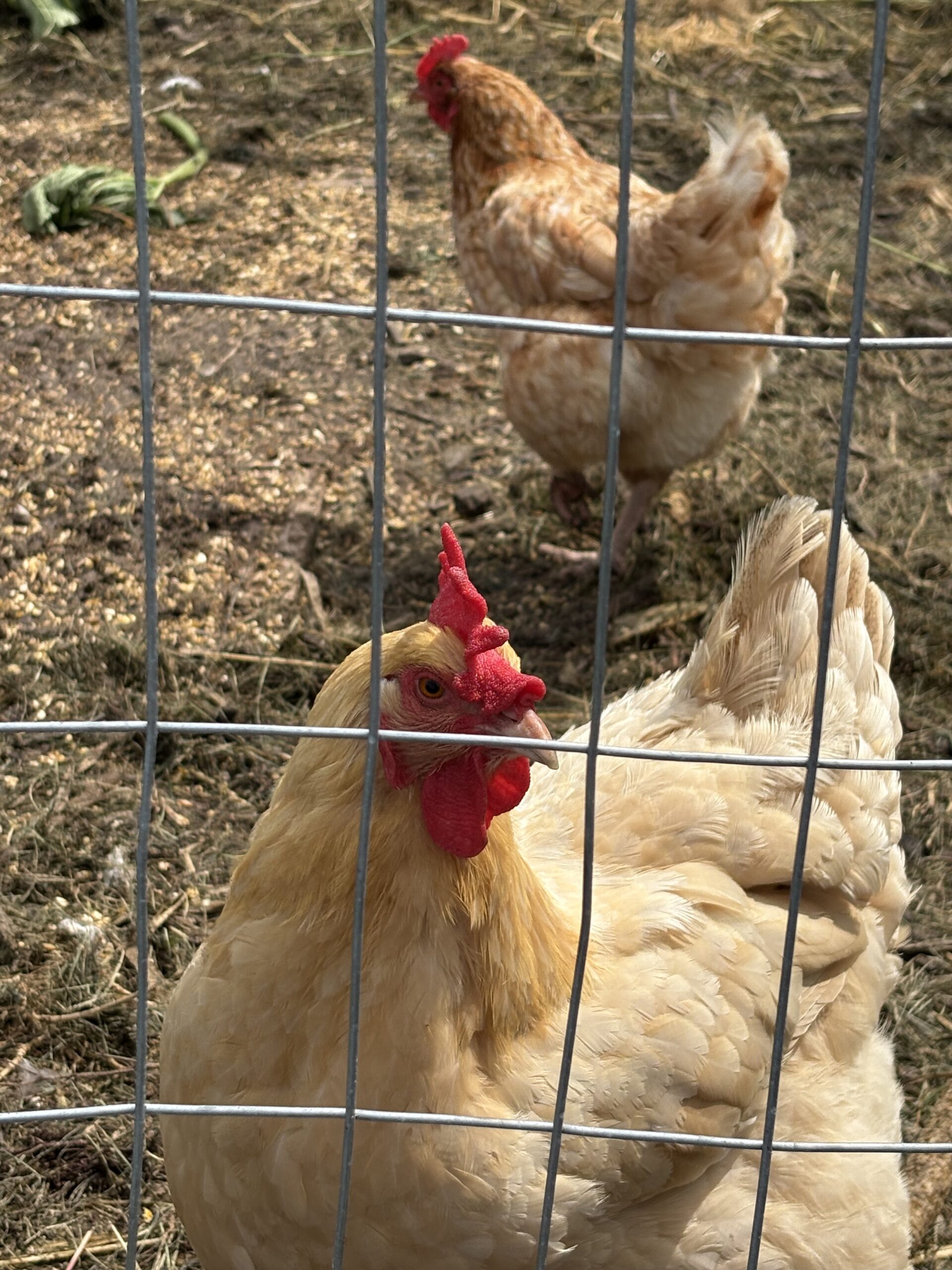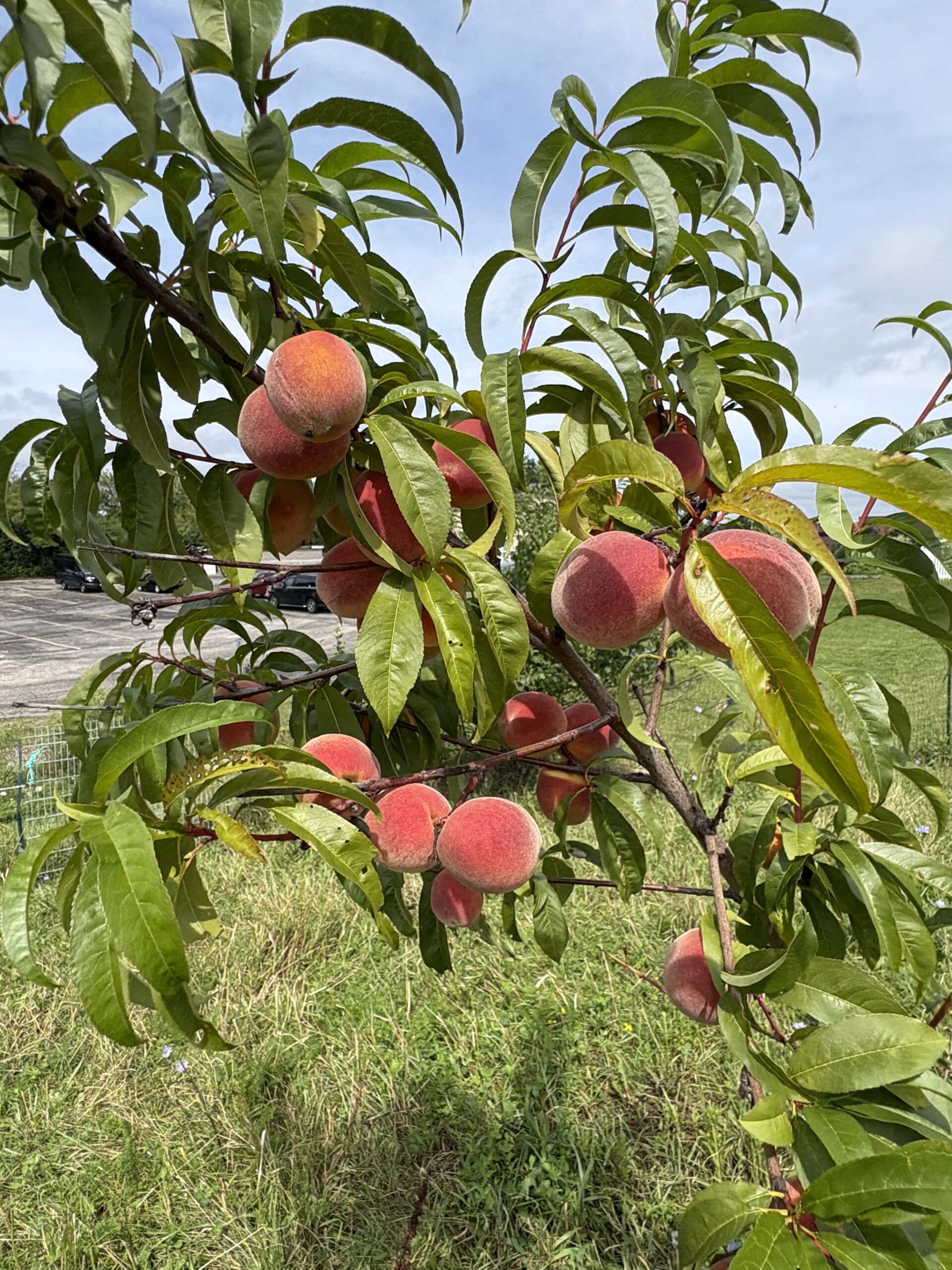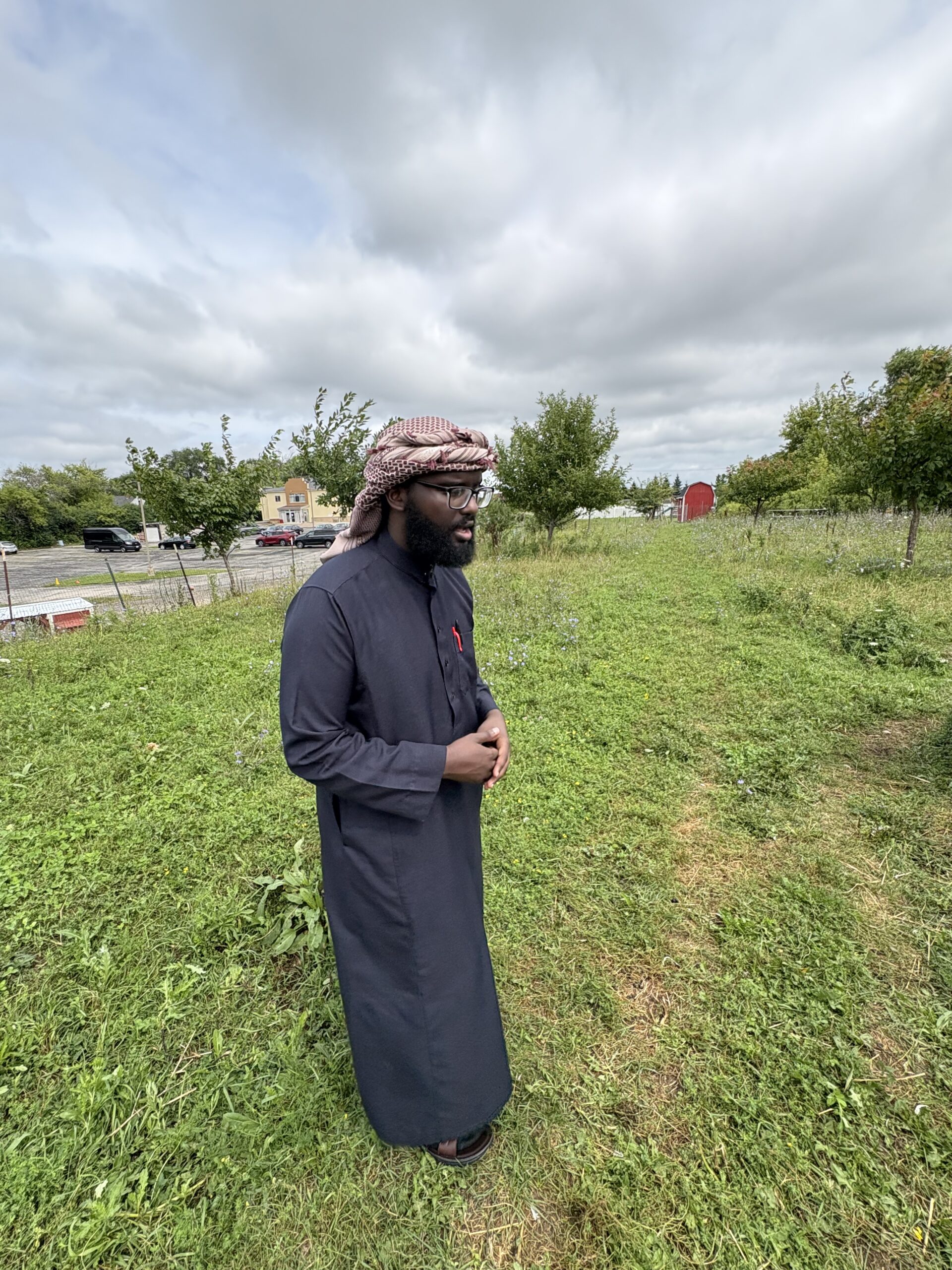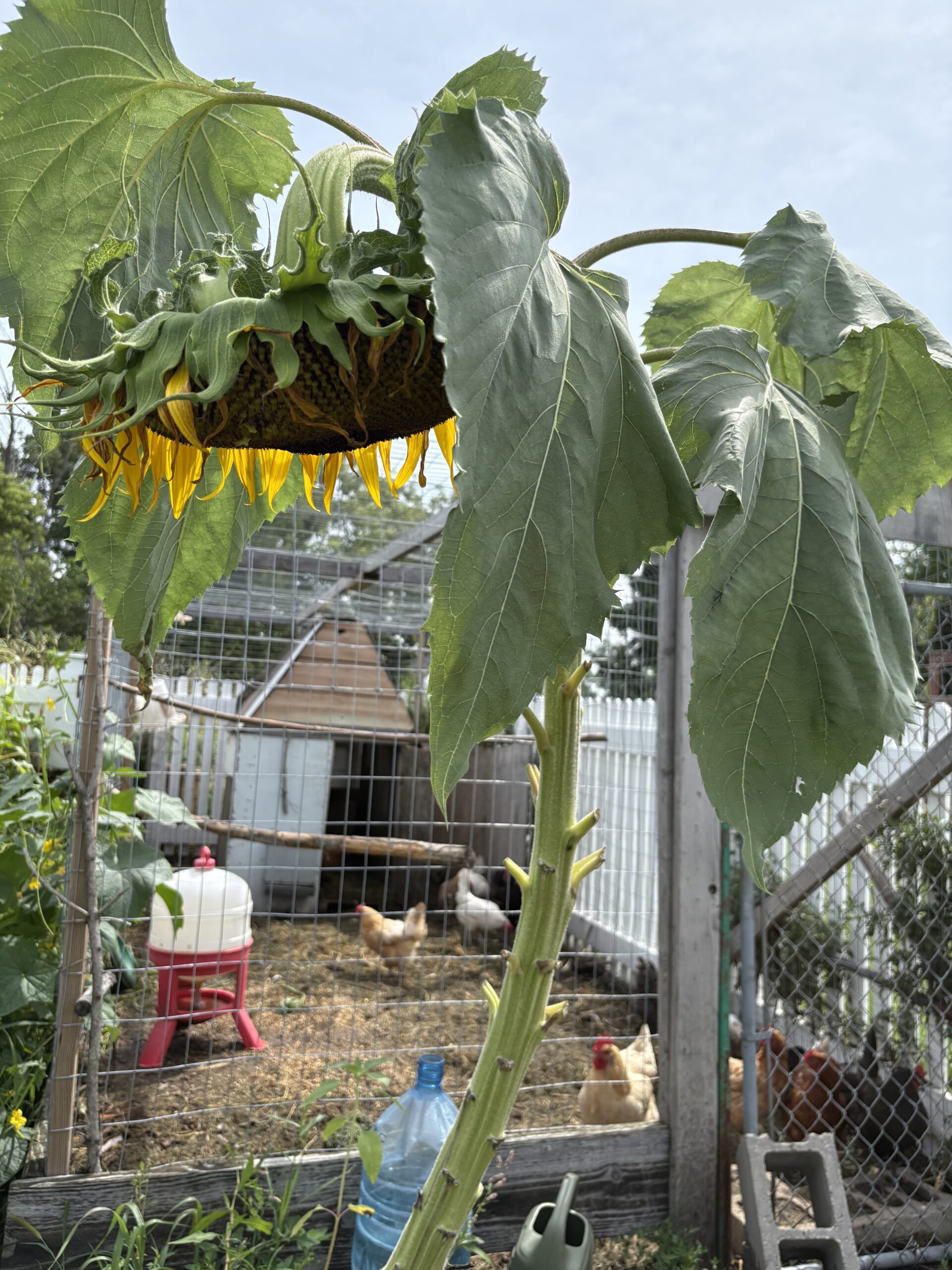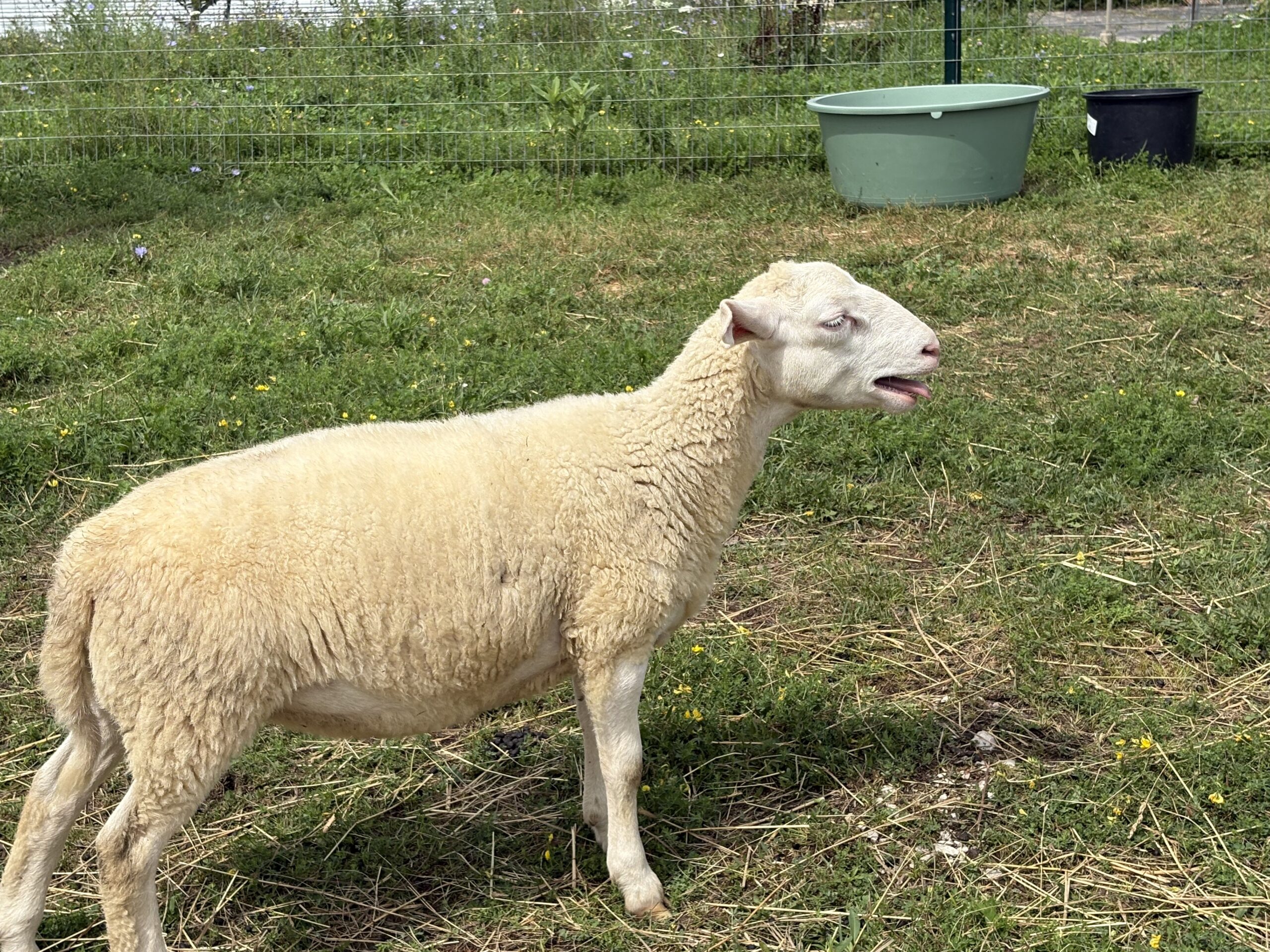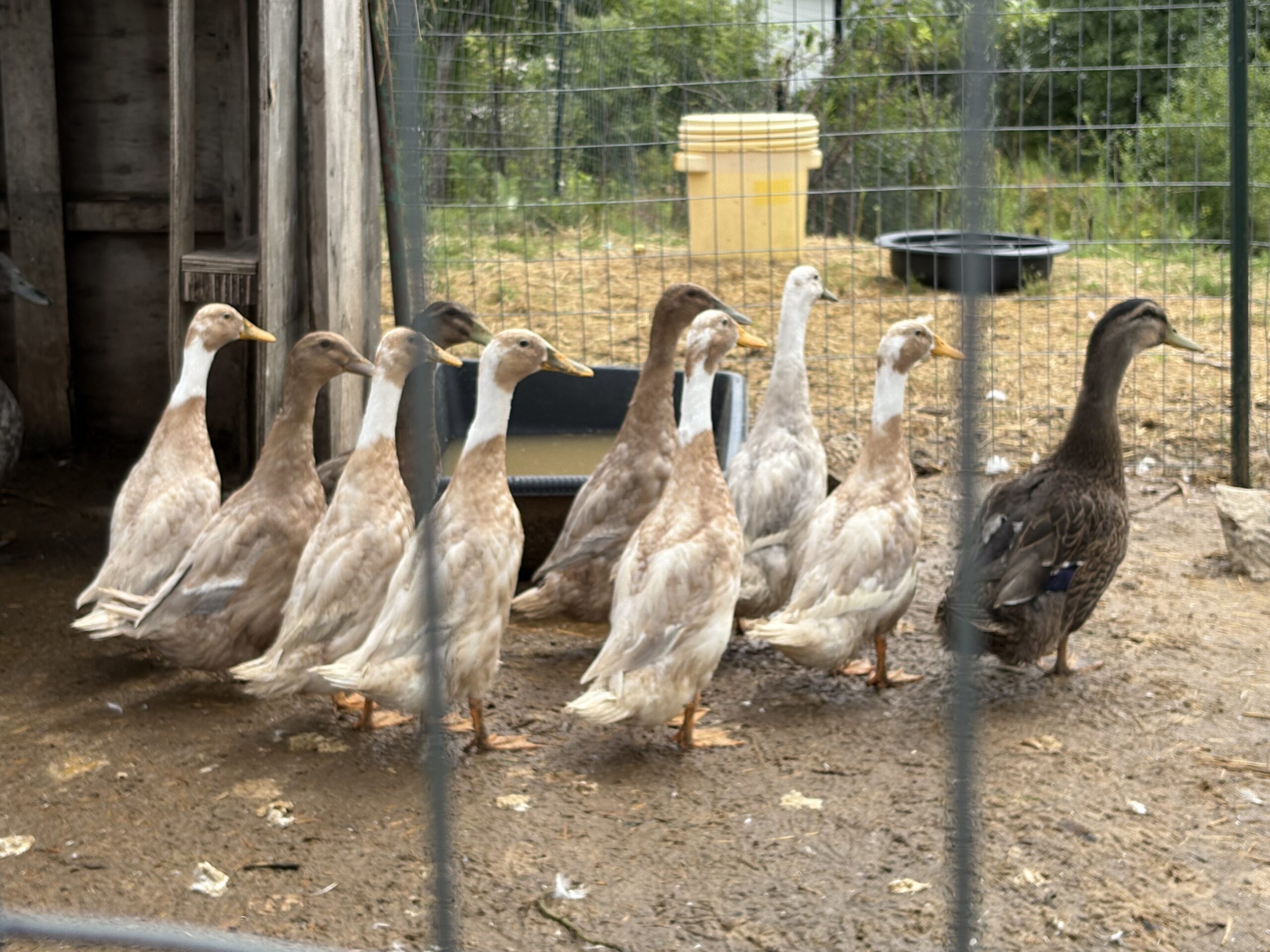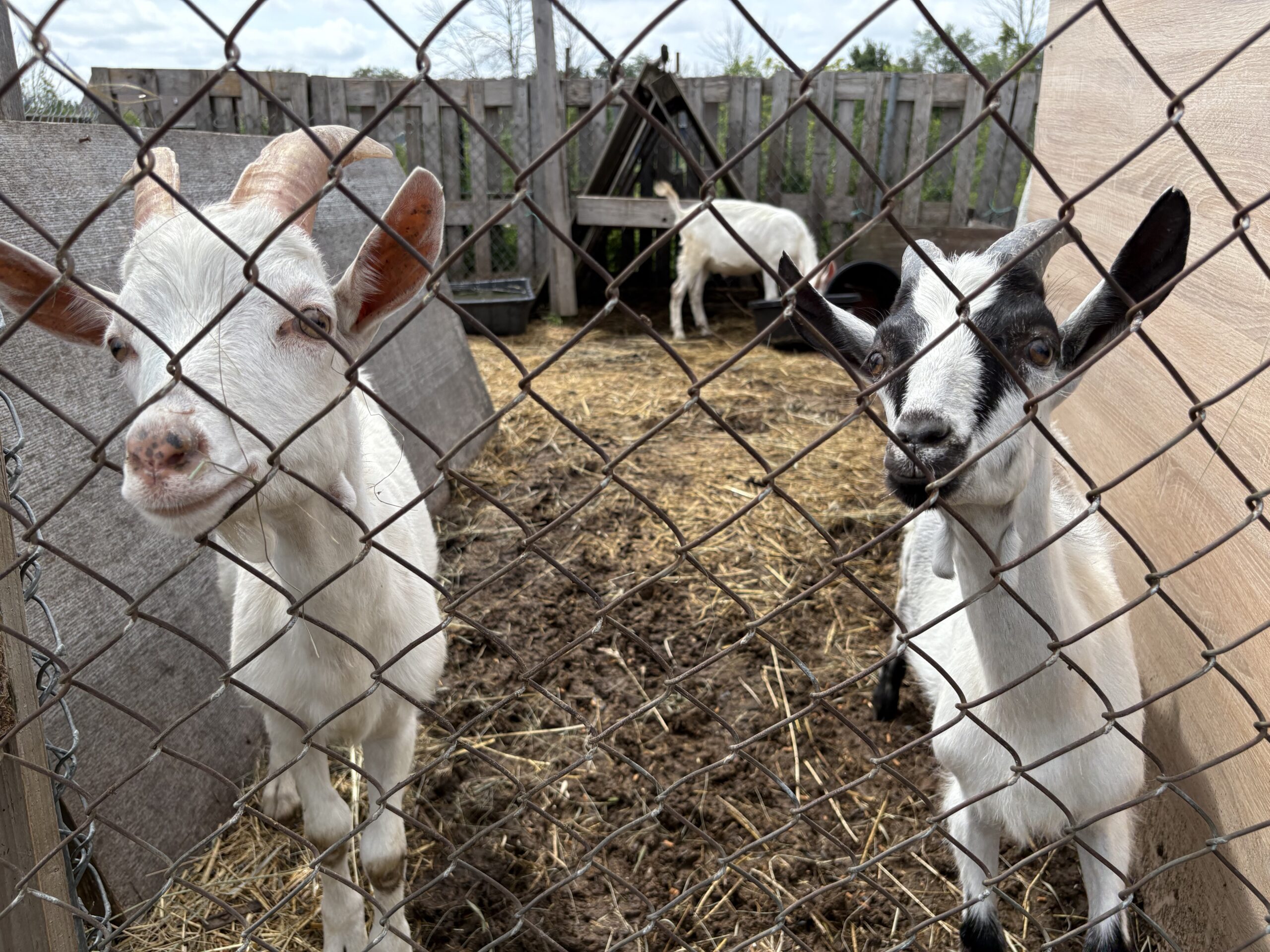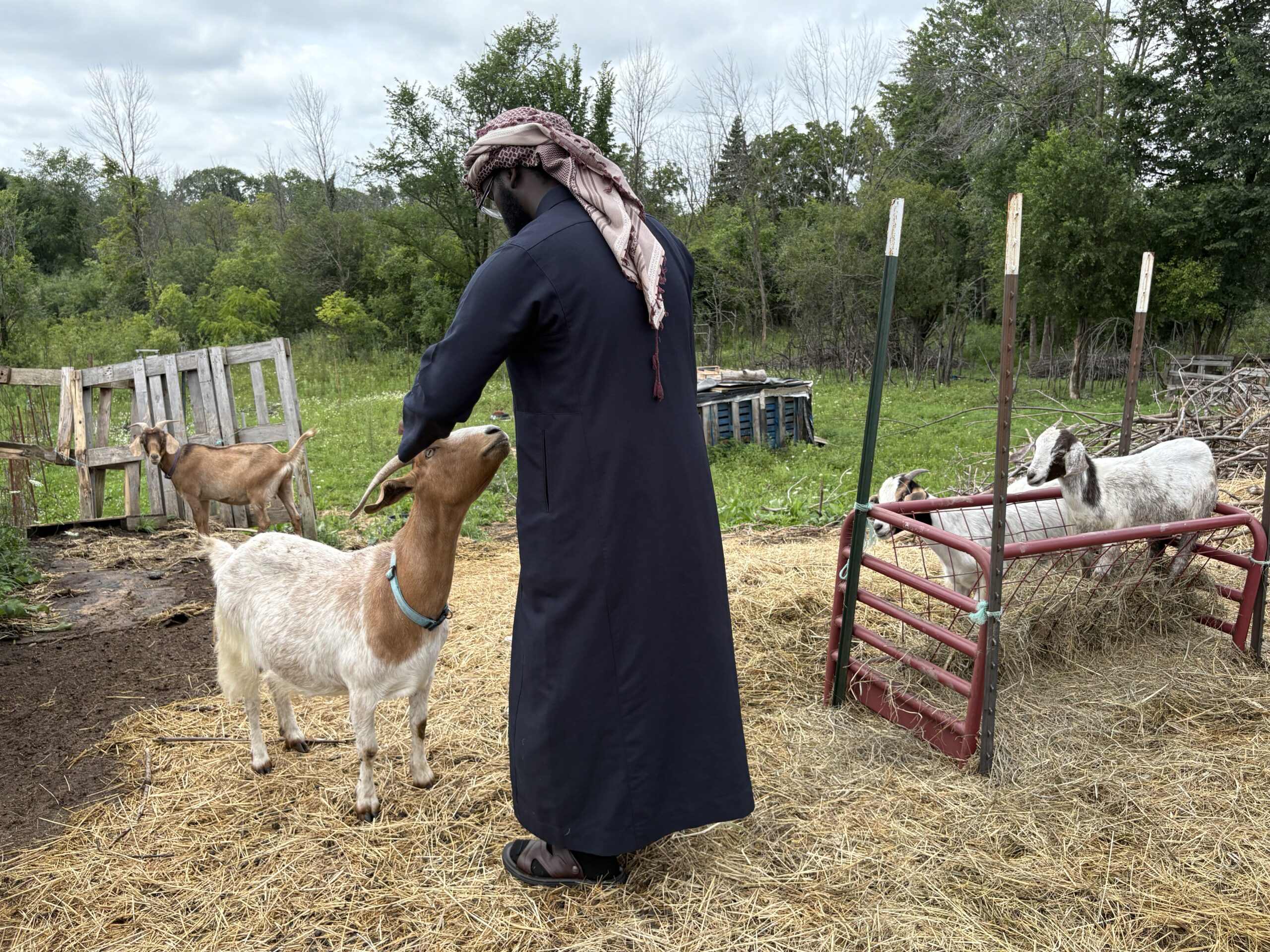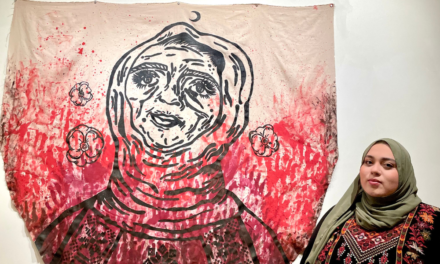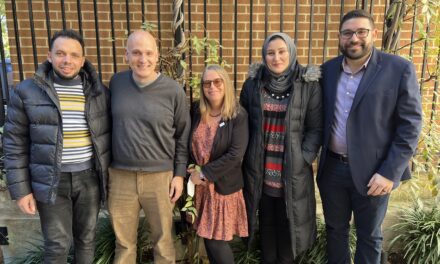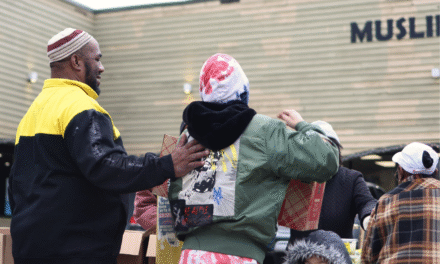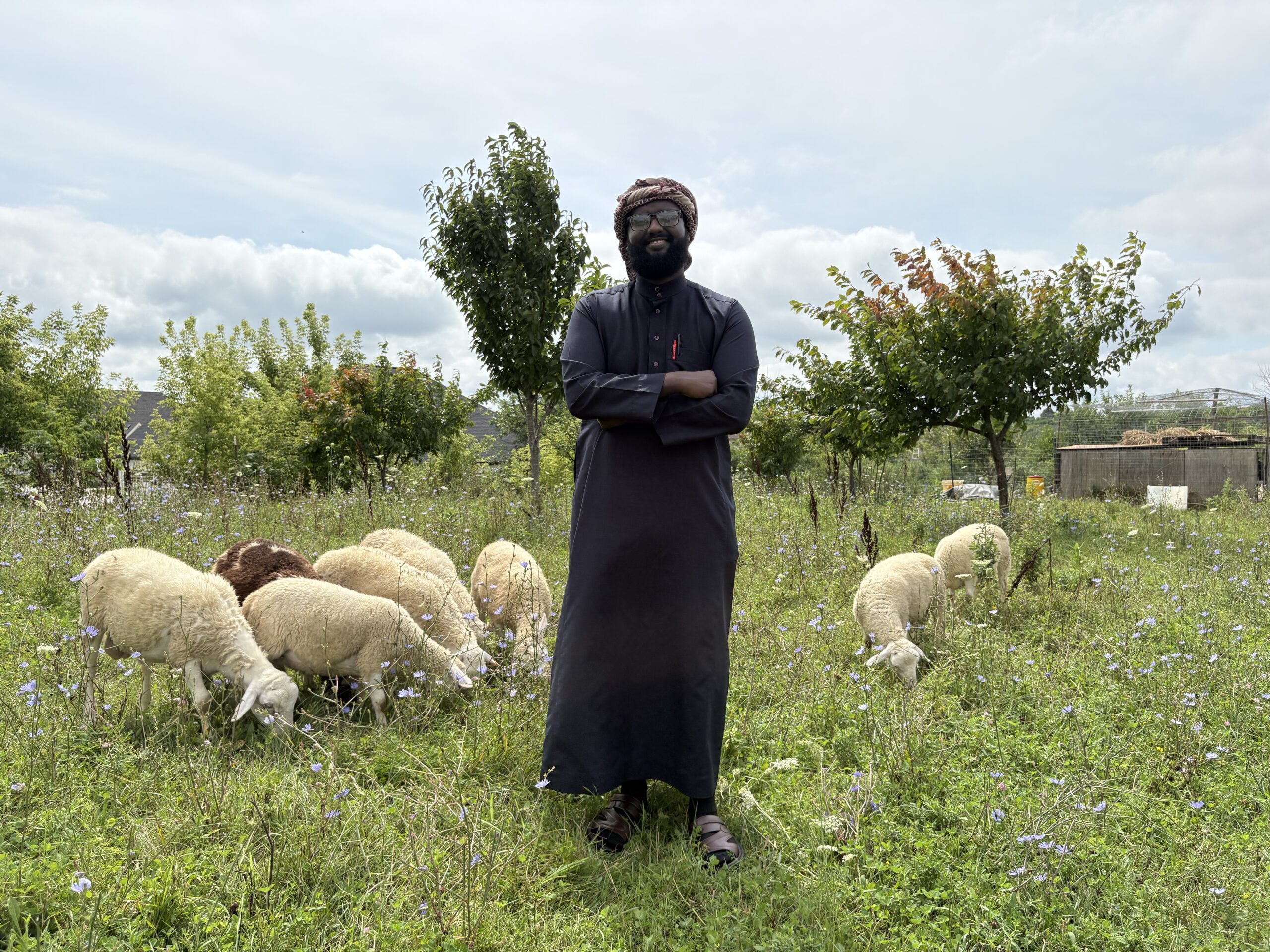
Photos by Cherrie Hanson
Imam Warfa Dualeh is serving as a visiting imam at Masjid al Qur’an in Milwaukee where the mosque uses much of its 8 acres as a small farm and ordchard.
Masjid Al Qur’an’s visiting Imam Warfa Dualeh of Nashville finds working at the Milwaukee masjid an experience like no other.
“I woke for fajar prayer and I was looking out that window right there,” he said, pointing to a window that faces Brown Deer Road. “I saw them—eight sheep standing around on the sidewalk in front of the masjid.
“They’re supposed to be over there in the back, where the farm is,” he said, gesturing to land behind the mosque that includes an orchard, bee hives, a vegetable garden, chicken coop and pens for goats and sheep.
“It was probably 4:30 in the morning so I didn’t have anyone to call. I just had to go out there and make sure they didn’t go into the street or escape. It was a very interesting experience because I had never really been on a farm before.”
After serving at Masjid Al Qur’an, Dualeh won’t be able to say that anymore!
Wisconsin Muslim Journal interviewed Dualeh on Aug. 7, when he had been in Milwaukee only three weeks, to get his impressions of Masjid al Qur’an’s unique farm education program.
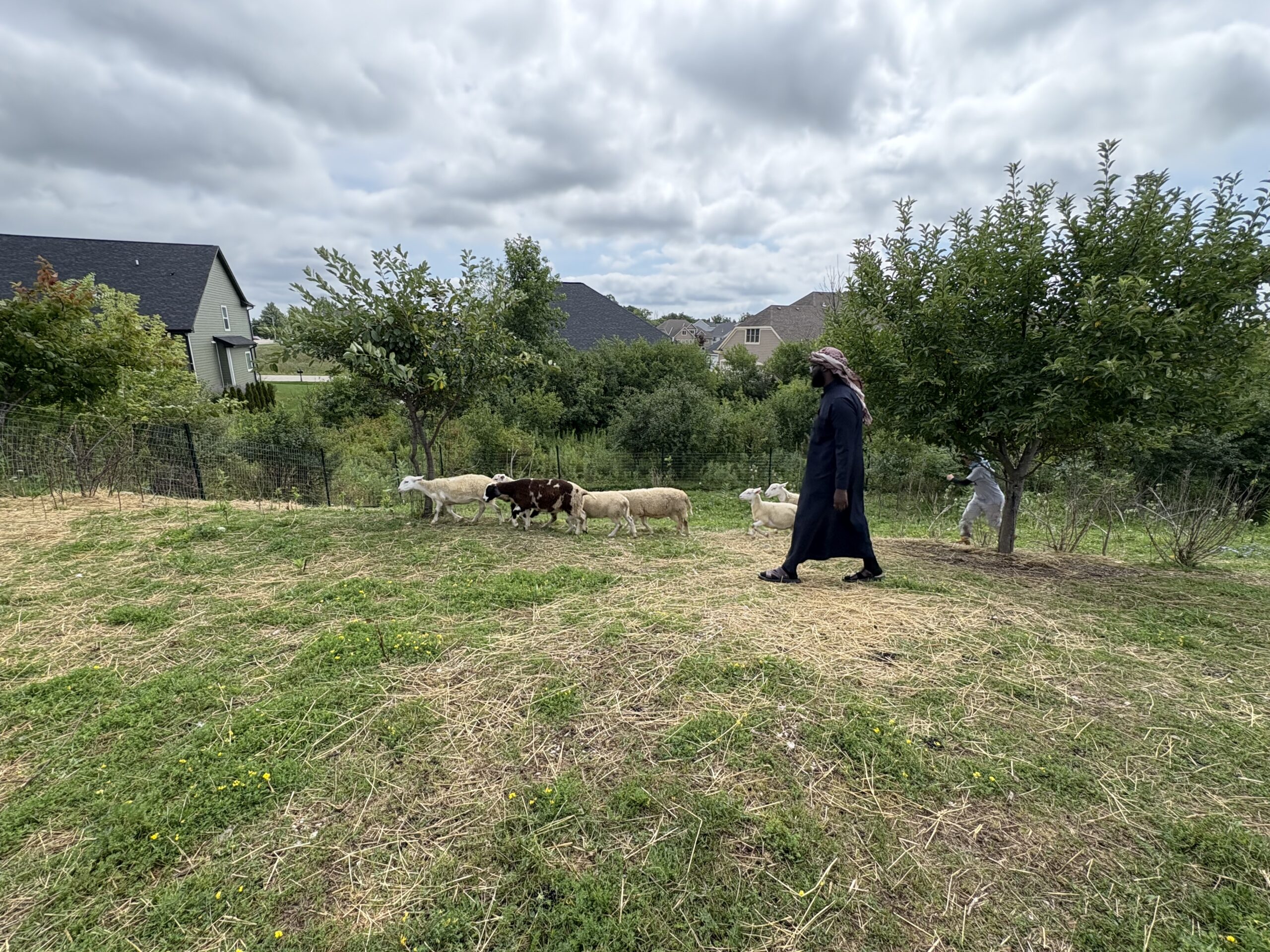
Imam Warfa discovered, “Sometimes the most powerful lessons aren’t taught in the classroom. They’re taught in the field, herding sheep that are running in the wrong direction. I’m grateful to be here and glad to be a part of it.”
The mosque with a farm
In Imam Hafiz Shafique’s absence, Dualeh is filling in at a masjid that sits on 8 acres of land at 11723 W. Brown Deer Road in Milwaukee, where community members participate in caring for plants and farm animals.
They plant vegetables, tend bee hives and nurture animals—goats, chickens and, most recently, sheep. There are eight sheep on the property that have five owners collectively. They were purchased from an Amish farm near Richland Center in early spring. Volunteers take care of them, as well as everything else on the farm.
Classes for children and youth, and activities for the community incorporate Islamic teaching around farm chores that reflect on the wonder of God’s creation and humans’ stewardship responsibilities.
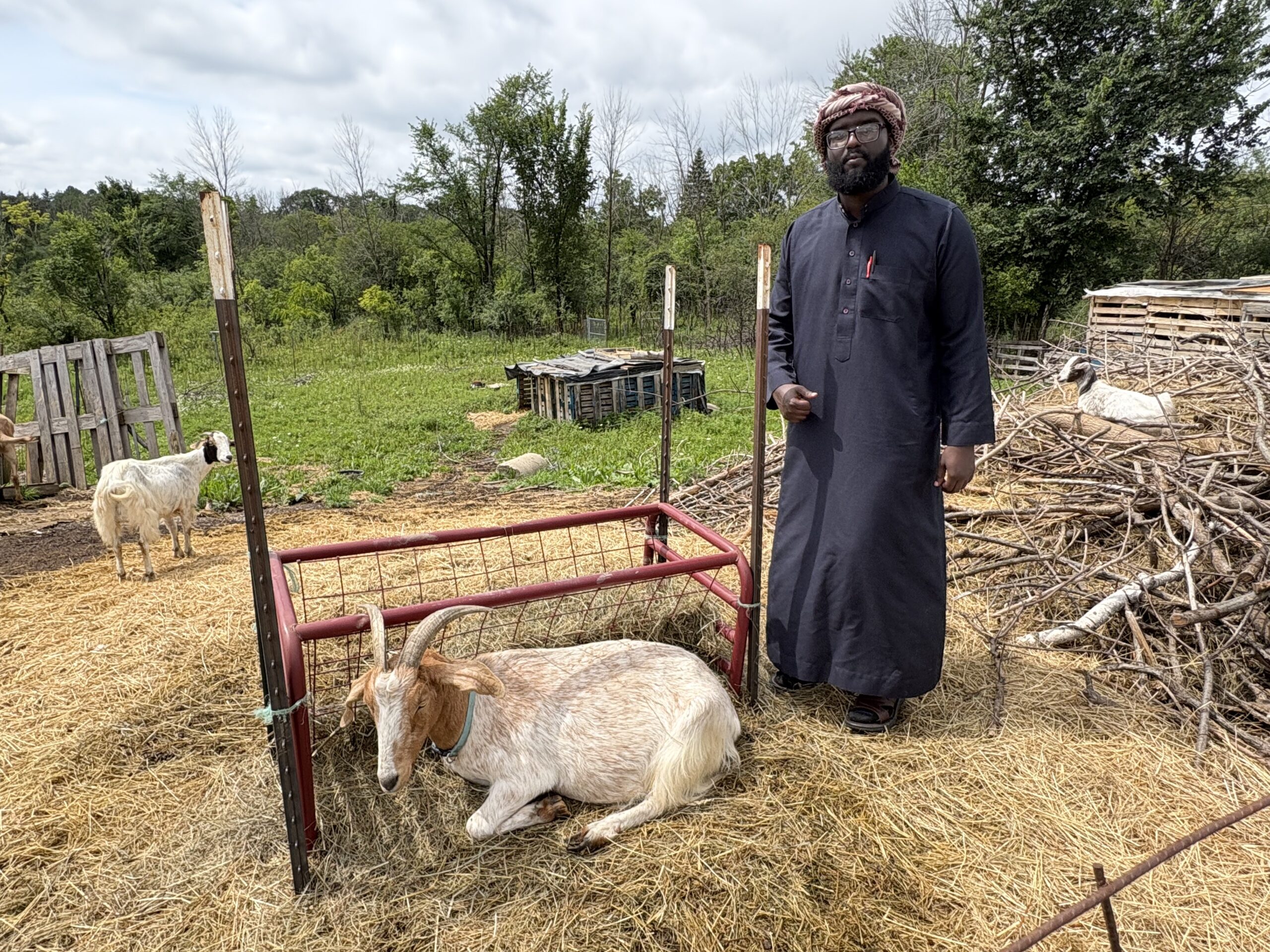
The education-based farm at Masjid Al Quran has eight acres for bee hives, a vegetable garden, fruit trees, goats, chickens and sheep.
Fatima Badwan of Brookfield brings her experience of work on a goat dairy farm to a volunteer role of caring for the mosque’s sheep and goats. She has a degree in economics and interest in environmental and agricultural economics. Her husband, Ali Shana, who is a doctoral student and researcher in Marquette University’s Educational Policy & Leadership Program, also volunteers at Masjid Al Qur’an.
Together they developed veterinary science classes that began in early June. “Kids from ages 3 to 14 participated,” Badwan said. “They learn how to care for an animal, to provide companionship, food, water. They learn to observe the animals to notice changes. We have a pregnant goat. I want to see if we can make a lesson out of that. I hope the lessons help develop mindfulness about what we are eating and how we treat animals.”
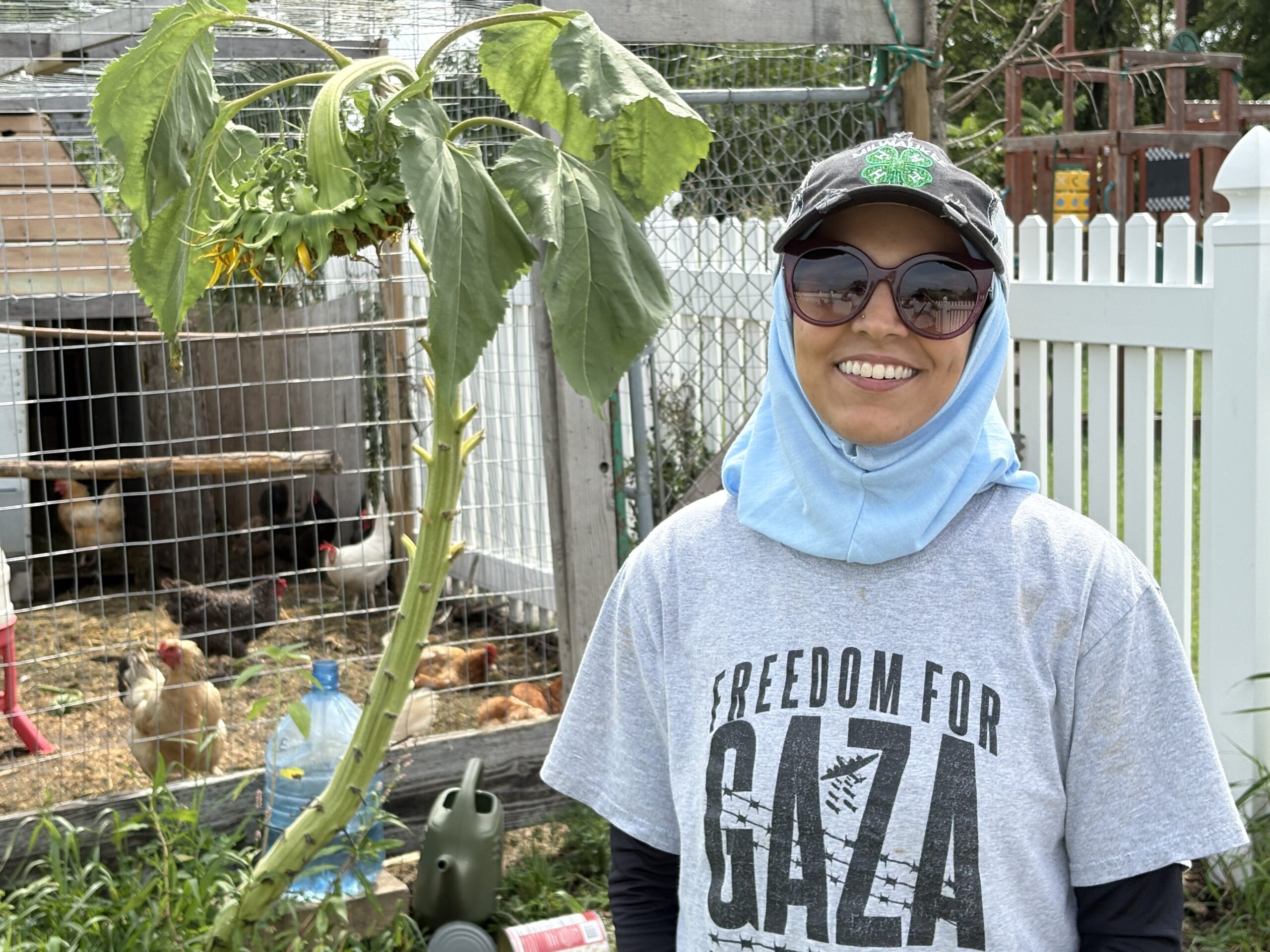
Fatima Badwan of Brookfield teaches veterinary science to children and youth at Masjid al Qur’an in Milwaukee.
Masjid Al Qur’an’s two-week summer camp is known for helping children and youth take a break from technology and connect with the natural world.
Recently an educator with a passion for STEM and experience with 4H moved to Milwaukee and has inspired Masjid Al Qur’an to develop year-round, hands-on 4H classes and workshops. They will include opportunities from the mosque’s farm as well as other topics.
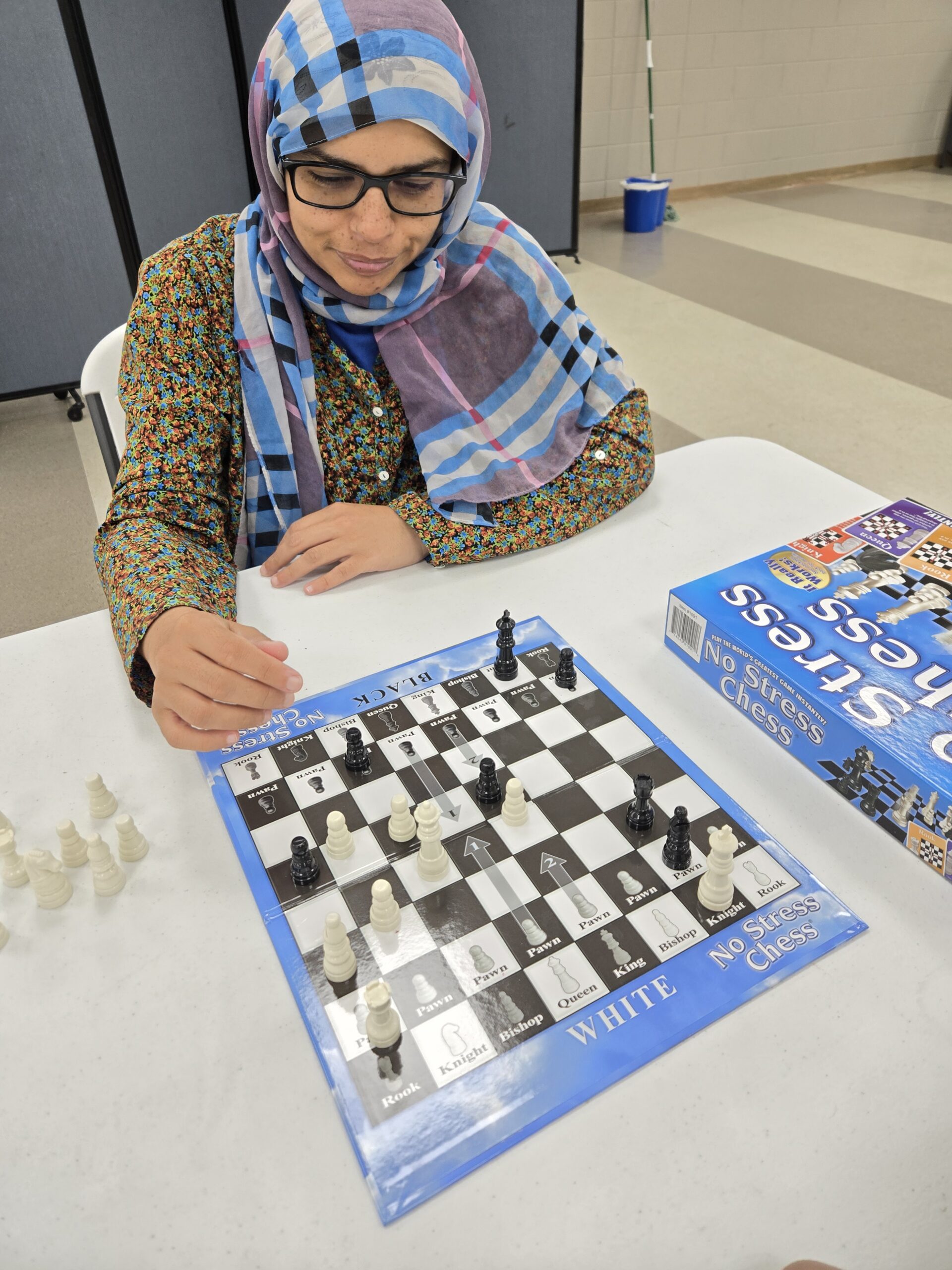
Photo courtesy of Zeeshan Habeeb
Zeeshan Habeeb, Ph.D. is introducing 4H programs at Masjid al Qur’an.
“4H has curriculum and teaching plans about just about any topic you can imagine,” said Zeeshan Habeeb, Ph.D., who moved to Milwaukee from Arkansas, where she taught chemistry and also worked with university colleagues to develop 4H programs for youth in the community.
As a volunteer at Masjid Al Qur’an, she is serving as a club leader and helping select a curriculum and develop a safety plan for year-round programming.
“When I moved to Milwaukee last year, my kids signed up for the summer camp,” Dr. Habeeb said. “I was just amazed. Learning about animals and activities like archery are things I don’t normally associate with a masjid. My only complaint was that it was only two weeks long.”
Habeeb introduced her idea about using 4H as a way to extend the programs and introduce new ones. “Imam Shafique is very open to new ideas and he took it right away for discussion in the community,” she said.
Like Badwan and Habeeb, there are many other knowledgeable individuals at Masjid Al Qur’an who are volunteering to help develop educational opportunities at the mosque.
What happened to the sheep?
Dualeh’s first move was to chase the sheep. That didn’t work well.
“They just ran away from me,” he said. “It’s funny but they looked like they knew they were in trouble and where they were supposed to go. I basically just followed them and I locked them in.
Soon Dualeh realized they led him astray. He had locked them in the goat pen.
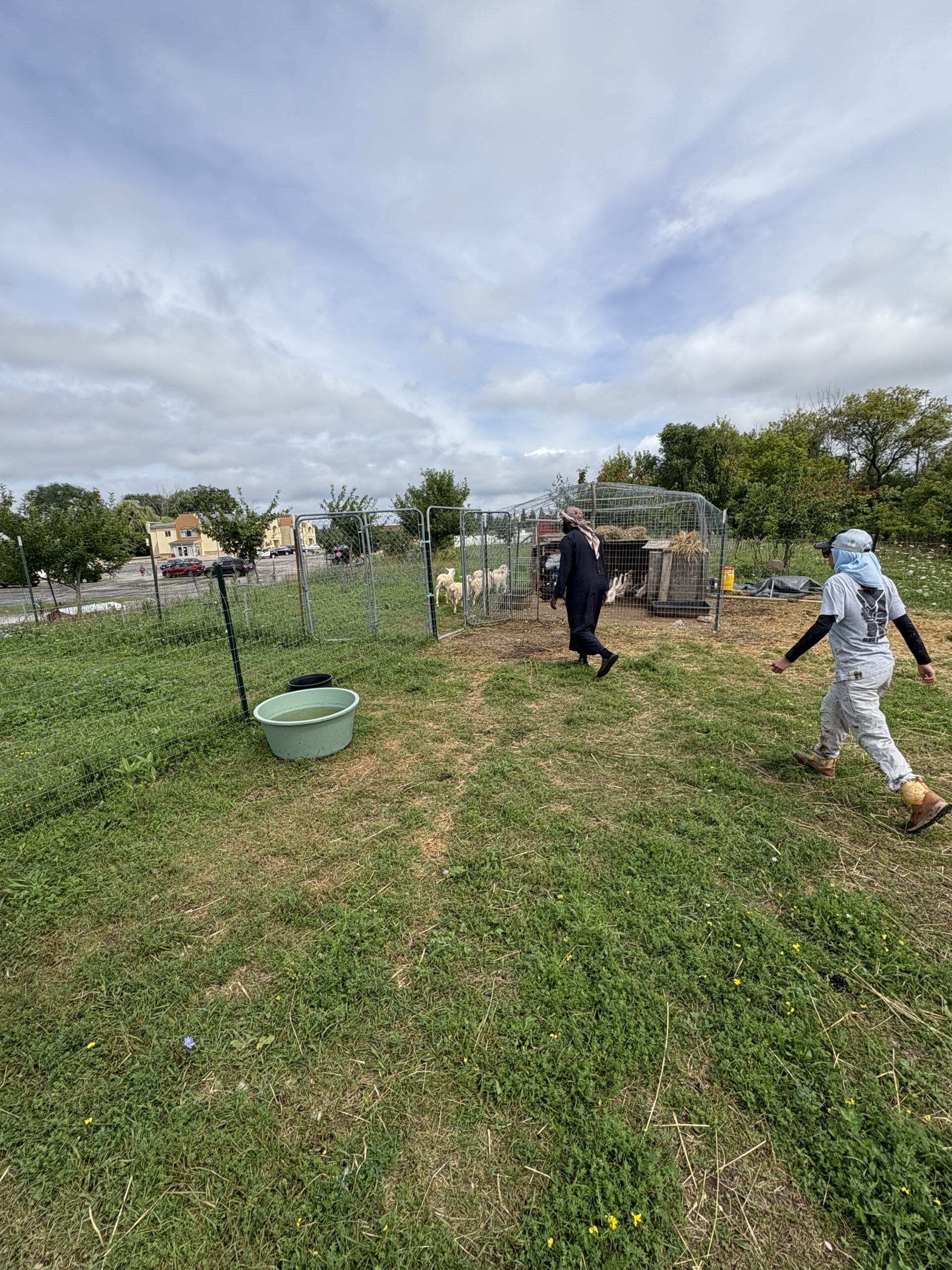
Sheep made a short-lived escape from their pen at Masjid Al Qur’an.
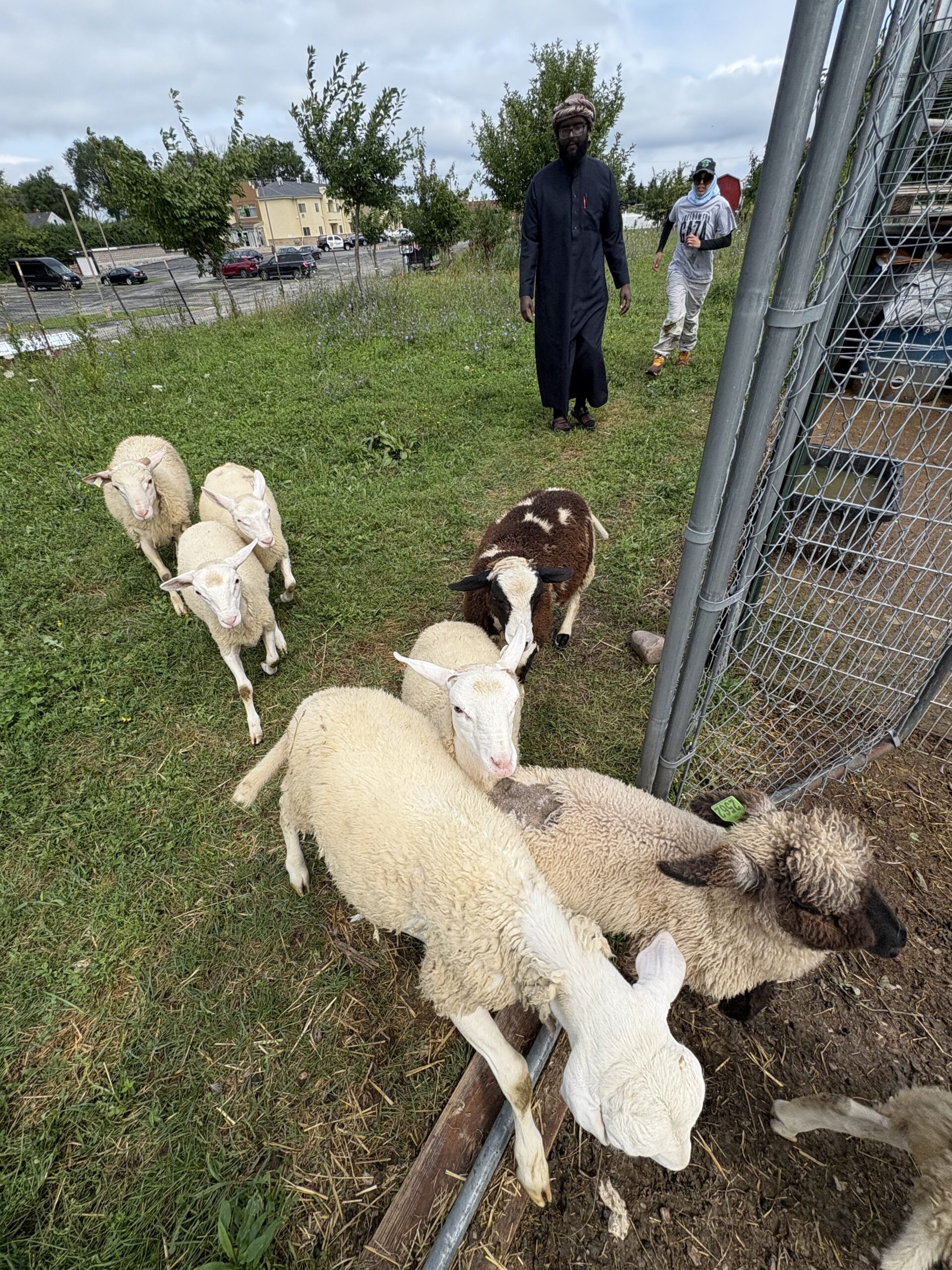
Volunteer Fatima Badwan and Imam Warfa Dualeh shephered the sheep back to their pen.
“I had to go back. After about two hours, I finally redirected them to their pen. It was quite challenging but at the same time a very rewarding and very fun experience.
“Shepherding takes a lot of patience,” he said. “We learn in Islam that every prophet was a shepherd at one point in his life.
“It’s also very symbolic because you’re going to be responsible over people and you’re going to have to know how to lead them in a way that’s gentle. If you’re too harsh, they’ll scatter, like what happened to me. Or they get distracted. If they see something tasty, they’ll stop and start grazing. You need to be aware of all this for your life as well.”
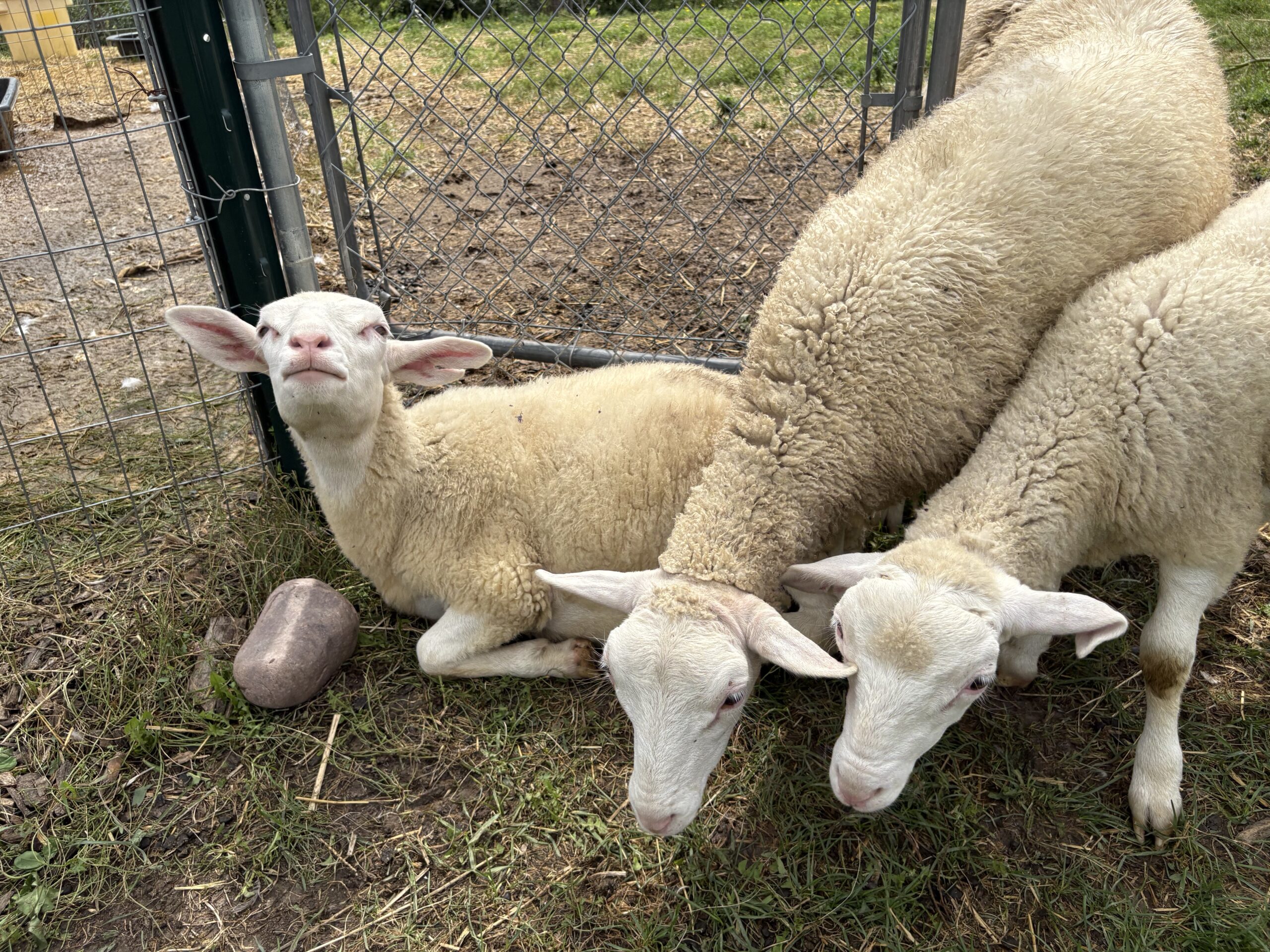
On the farm
Dualeh had heard of Masjid Al Qur’an’s farm before he came, but seeing it is special,” he said. “It is definitely very unique and something I’m not accustomed to. It is very beneficial, especially to the children and youth of this community.
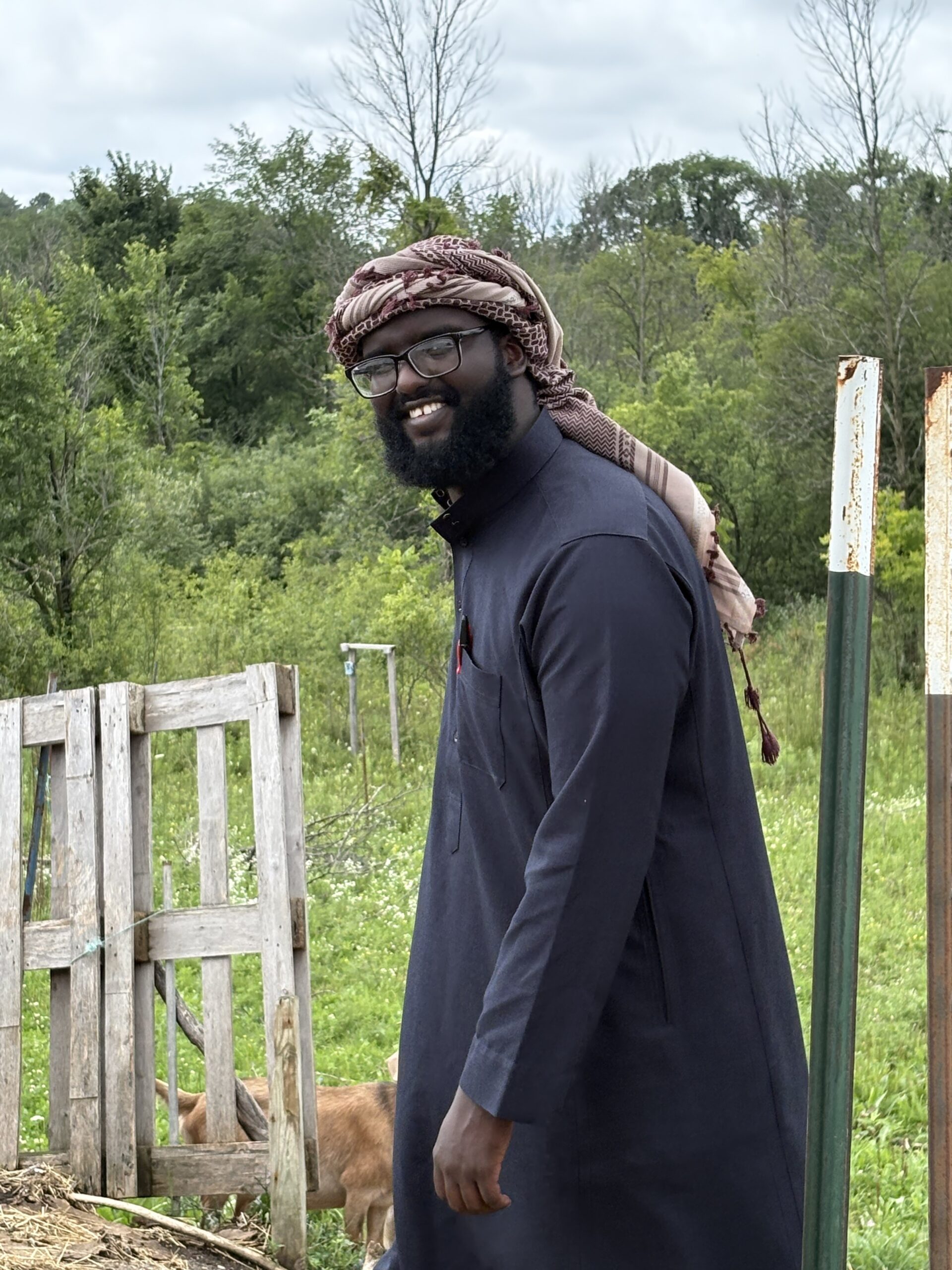
“I don’t know anything about farm life but I actually love it,” Dualeh beamed. “About two weeks ago, we had the honey harvest. I got to volunteer and help out even before the event started because we needed to empty out some of the honey. That was a very rewarding experience as well. It was my first time. Hopefully, there will be many more, inshallah!
“The farm offers lessons in many Islamic values,” he said. “For example, an entire chapter of the Quran talks about bees and how honey is beneficial for mankind and has healing properties. It’s also a metaphor for life. The honeybee is a hard worker. It is part of a tribe where everyone has a role to play.
“Other mosques have youth activities with basketball, soccer and swimming. This is the first I’ve heard of a mosque doing something like this.
“I think it is much better. It’s a very hands-on experience and it is something that helps the community stick together, with so many people volunteering. It is definitely a strength that is not something you find elsewhere.”
“It is a chance for them to connect with nature and see the countless signs Allah has placed for us and as He talks in the Quran constantly about the heavens and the earth, the animals and the trees, and how He created it all.
“Sometimes the most powerful lessons aren’t taught in the classroom. They’re taught in the field, herding sheep that are running in the wrong direction. I’m grateful to be here and glad to be a part of it.”
